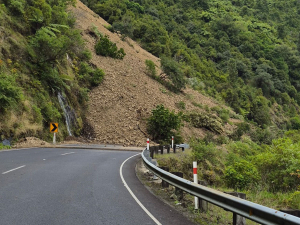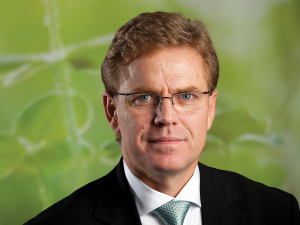New Zealand runs the risk of being caught up in the economic war between China and the US, according to Rabobank's head of global economics and research, Jan Lambregts.
He says this is all part of the new era of disruption of which geopolitics is playing a major part. He says the situation has changed from the time when the world was hypo-globalised and where everyone was chasing a buck and trade was much freer.
"Now you could argue the world is re-globalising - especially with the cold economic war between China and the US and everyone else is being caught up in this including New Zealand," he says.
The problem, says Lambregts, is that it's becoming increasingly difficult for countries to remain neutral in this economic war. He notes for example Australia is inextricably tied to the US. He says both American and China are trying to forces countries to take sides and for NZ that is a problem given our high dependence on that market for our primary exports.
He says the US is putting a lot of pressure on China by cutting off their access to American made high end semiconductors.
"That is massive given China's ambition is to become a market leader in all these sectors in the next five to ten years. But right now, they don't have access to that sort of technology. It's a case of both countries wanting to be 'top dog'," he says.
Lambergts says he was predicting the proxy economic cold war between China and the US would occur five years ago and says he had trouble convincing his colleagues about this. But says his predictions have now come true.
He says the other geopolitical issue that is affecting trade is the war in Ukraine. Lambregts believes the Ukrainians have more to gain by fighting than sitting around the negotiating table and says the Russians are clearly in the war for the long haul and don't want to negotiate earlier. He says if both sides think they have more to gain by fighting than from negotiating then the outcome is clear - both sides will just keep on fighting even though they are running out of ammunition, people, and material.
"I fail to see a breakthrough for either and I struggle to see them negotiate a ceasefire. The likelihood is this will become a frozen conflict that will last for years, and the disruption will last for years," he says.
Lambregts says the breadbasket of Europe has been disrupted by the Ukraine conflict, but he says the record grain harvest in Russia has helped mitigate the problem and people, realising the conflict may be long term, are looking at ways of overcoming the disruption.
He says the NZ-China relationship is a delicate one that requires careful handling.
He says it's not a case of suddenly ending a very successful trading relationship, rather it's a case of NZ continuing to find new markets and not become reliant on one market. Lambregts says there are other markets close to NZ which offer opportunities such as Indonesia, the Philippines and Thailand. India is another, he says.
Lambregts says his key message is that people now need to be more aware of and better informed about the world re-globalising and the implications of this in terms of trade. He says there is a risk that some customers may demand that exporters choose sides, and that policymakers, politicians and businesspeople need to be vigilant about this.


















